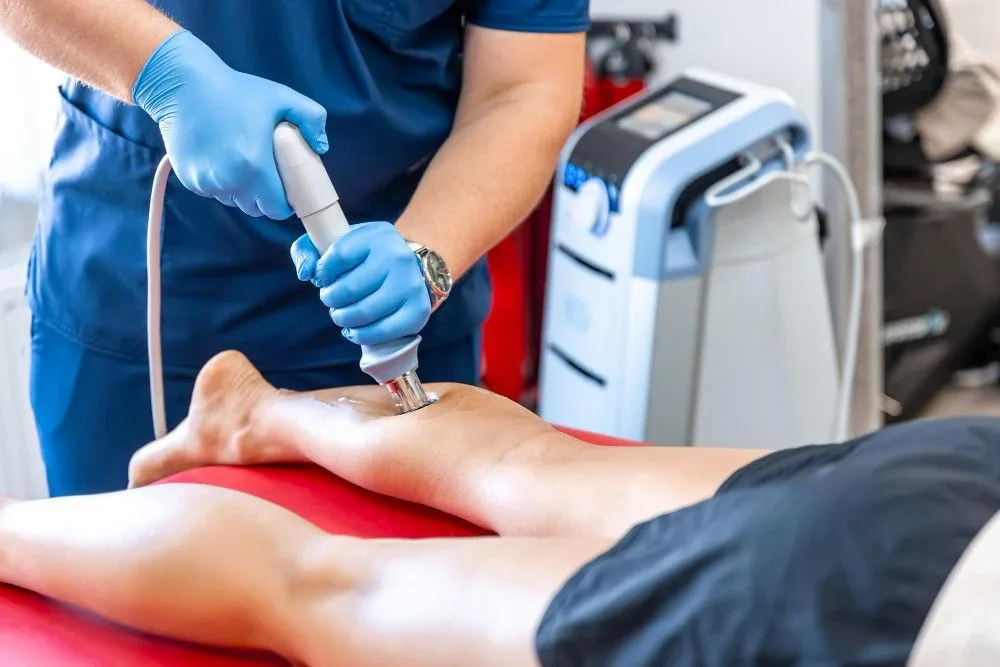You have taken ibuprofen (Advil or Motrin) for that persistent muscle pain, and now you are planning to de-stress yourself with a glass of wine. But, before preparing that wine glass, you might be wondering, "How long after taking ibuprofen can you drink alcohol?" Mixing alcohol and ibuprofen can cause certain unpredicted consequences. Hence, understanding the time period between using both substances is crucial to staying safe.
Our guide will help determine when to bottle your wine after taking the medication. Additionally, we'll discuss the potential risks of mixing alcohol and ibuprofen.
How Long After Taking Ibuprofen Can You Drink Alcohol?
If you want, it is advised to drink alcohol after 24 hours of taking ibuprofen. This is the time the body takes to clear the ibuprofen after the last use completely. If you have used the single dose for minor pain, then prefer drinking alcohol after 6 to 8 hours. However, if you have been taking the ibuprofen frequently, wait for at least 24 hours.
Remember that long-term use of ibuprofen can increase the chances of some side effects such as gastrointestinal bleeding and more. Hence, you need to always consult the doctor for the right guidance.
Is it Safe to Take Ibuprofen With Alcohol?
Generally, it is not safe to take ibuprofen with alcohol. However, the answer to this question can vary depending on a few factors. If you are not at high risk of any health issues, then moderate consumption of alcohol is safe to take with 200-400 mg of OTC ibuprofen. According to the Centers for Disease Control and Prevention (CDC), a moderate quantity of alcohol for men is 2 drinks or less a day, and for women 1 drink or less a day.
However, some groups should be very mindful when taking ibuprofen and alcohol as it can lead to certain side effects. Those people include who have:
-
a history of gastrointestinal bleeding
-
impaired kidney function
-
liver impairment or liver disease
-
been advised to avoid ibuprofen due to some health conditions
Risks of Combining Ibuprofen and Alcohol
The National Institute on Alcohol Abuse and Alcoholism (NIAAA) recommended to avoid mixing alcohol and ibuprofen as it can lead to side effects such as upset stomach, ulcers, stomach bleeding, liver damage, and more. Have a detailed look at the risks of combining and using both substances:
1. Gastrointestinal Issues
Gastrointestinal (GI) bleeding can occur which is a life-threatening symptom if left untreated. NIAAA warns that 1 drink a day can increase the gastrointestinal bleeding risk associated with NSAIDs like ibuprofen use by around 37%.
The GI bleeding symptoms might include:
-
Black, red, or tarry stool
-
Stomach pain
-
Blood in a toilet
-
Sudden nausea
-
Lack of appetite
-
Vomiting (bright-red blood that appears like coffee grounds)
2. Kidney Damage
One study reported that 2 college students suffered acute renal failure after taking alcohol and ibuprofen together.
The symptoms of kidney damage might include:
-
Less or more urination, especially at night
-
Dry, yellowish, itchy, or pale skin
-
Swelling in the hands, ankles, or feet
-
Shortness of breath
-
Back pain
3. Liver Damage
With increased use of ibuprofen, people can experience liver toxicity as the liver is responsible for processing and metabolizing the drug. Research shows that alcohol can worsen liver toxicity, contributing to liver damage. The liver damage symptoms may include:
-
Stomach pain in the upper-right area
-
Nausea
-
Vomiting
-
Abdominal swelling
-
Yellowing of the skin
4. Heart Problems
Combining and using both substances can also result in fatal heart-related issues. Those may include:
-
High blood pressure
-
Coronary artery disease
-
Heart attacks
-
Stroke
-
Heart failure
5. Risk of Accidents
Alcohol can increase the ibuprofen's sedative effects which can impact the motor and cognitive skills. This, in turn, can result in the following symptoms which can lead to incident risks:
-
Impaired coordination
-
Dizziness
-
Drowsiness
Important Considerations:
-
Frequent Use: If you use ibuprofen regularly for chronic inflammation or pain, avoid alcohol. Always discuss mixing the two with your doctor.
-
Pre-existing Health Conditions: If you are already living with kidney issues, liver disorder, or GI problems, or have a history of ulcers, do not take ibuprofen and alcohol together.
What To Do in Case You Take Alcohol and Ibuprofen Together
If you have ibuprofen and a mild to moderate quantity of alcohol together, avoid consuming more alcohol. Eat a small meal or snack, and also drink a lot of water. This will help lower the chances of upset stomach or other stomach issues.
When to seek medical attention:
Immediately see the healthcare provider, if you experience:
-
Gastrointestinal bleeding symptoms like black stool, dizziness, stomach pain, bloody vomit, or rapid heartbeat.
-
Kidney damage symptoms like excessive exhaustion, shortness of breath, or swelling in the feet, hands, or ankles.
Call 911 emergency number, if you experience alcohol poisoning symptoms like:
-
Severe confusion
-
Seizures
-
Irregular or slow breathing
-
Trouble staying conscious or awake
-
Slow heart rate
-
Bluish or pale skin
Tips to Safely Take Alcohol and Ibuprofen
You can consider these safe strategies to minimize risks:
-
Wait for at Least 24 Hours: Use both substances separately, waiting for at least 24 hours.
-
Limit Alcohol Intake: If wanted, drink alcohol at a moderate level to prevent further risks.
-
Have with Food: Take medication with food or after eating a meal to reduce stomach irritation.
-
Avoid Heavy Drinking: Do not consume large quantities of alcohol if you recently had ibuprofen.
-
Stay Hydrated: Have a lot of water to facilitate the metabolization and excretion of ibuprofen and protect your kidney health.
Other NSAIDs to Consider
Along with ibuprofen, it is not recommended to take alcohol with the following Nonsteroidal anti-inflammatory drugs (NSAIDs):
-
Meloxicam (Mobic)
-
Diclofenac (Cambia, Cataflam)
-
Naproxen (Aleve, Naprosyn)
-
Celecoxib (Celebrex)
-
Aspirin
All these NSAIDs have the similar warning for severe side effects like ibuprofen, so, avoid them completely.
Final Thoughts
How long after taking ibuprofen can you drink alcohol? Though you can drink alcohol after 24 hours of taking the last dose of ibuprofen, it's best to consider caution. Avoid mixing both substances in some cases, it can lead to severe complications such as gastrointestinal bleeding, kidney failure, liver damage, and risk of accidents. So, avoid combining them completely, especially if you have specific health issues or are unsure. The best idea is to consult the providers for the appropriate personalized guidance.
Always be cautious about the timing (wait at least 24 hours) when mixing alcohol and ibuprofen. Prioritize your health and stay safe!
Frequently Asked Questions
Can you drink alcohol six hours after taking ibuprofen?
No, you can't. Wait for at least 10-24 hours after taking ibuprofen to reduce the adverse side effects.
Are there any pain relievers not affected by drinking alcohol?
No, pain medications are there that can't be affected by alcohol; every medication has some potential side effects.
When can you have ibuprofen after alcohol?
You can take ibuprofen after 24 hours of drinking alcohol.
What if you accidentally have alcohol while on ibuprofen?
You can experience nausea, headaches, fainting, vomiting, drowsiness, or loss of coordination.
Reviewed by







